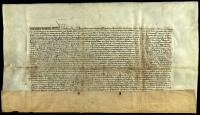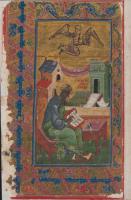About the Exhibition
The name of this exhibition, “The Gardens of Mnemosyne”, has been inspired by the Ancient Greeks’ goddess of memory and mother of the Muses who gifted poets and orators with eloquence. Mnemosyne may be thought of as the patron goddess and the poetic personification of every memory institution in existence. The gardens of the title allude to a green, lush, blooming space, an eternal source of inspiration and respite for its creators. And if we added another metaphor, the Athens of North, to the gardens of Mnemosyne, it would be a hint that our exhibition features the cultural treasures kept in the Wroblewski Library of the Lithuanian Academy of Sciences in Vilnius.
These unique documents may even be called treasures among treasures, as they are included in the UNESCO “Memory of the World” national register. You are very welcome to take a look at them in our “Gardens of Mnemosyne”, especially having in mind that 2020 was declared the UNESCO World Heritage Year by the Seimas of the Republic of Lithuania. The exhibition “Gardens of Mnemosyne” is dedicated to this very occasion.
The Wroblewski Library is a custodian of twelve individual documents and part of a collection included in the UNESCO “Memory of the World” national register in 2006–2019. Seven manuscript and five print documents kept in this memory institution are recognized as objects of documentary heritage of regional significance. Two manuscript books kept in the Wroblewski Library, together with other documents kept in the Vilnius University Library and the Order of Friars Minor Annunciation Monastery in Kretinga, constitute the Collection of documents of the Informal School of Lithuanian language at the Order of Friars Minor Annunciation Monastery in Kretinga. These documents have the status of national significance.
Design, introduction and descriptions of print books by the Head of the Rare Book Department
of the Wroblewski Library of the Lithuanian Academy of Sciences, Dr. Daiva Narbutienė
Descriptions of manuscript documents by Dr. Rima Cicėnienė and Erika Kuliešienė
Translated into English by Ana Venclovienė
Compiled according to the applications submitted to the UNESCO “Memory of the World” national register


